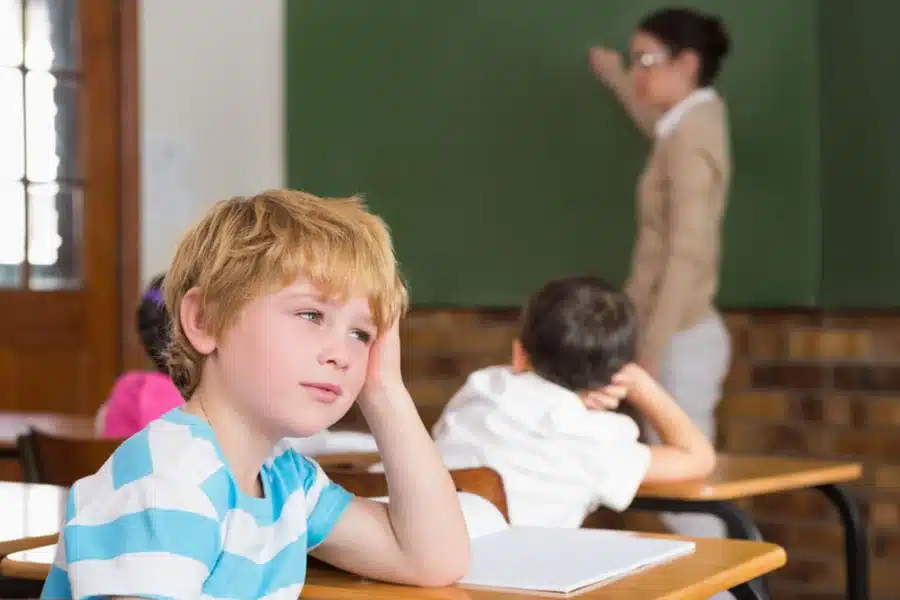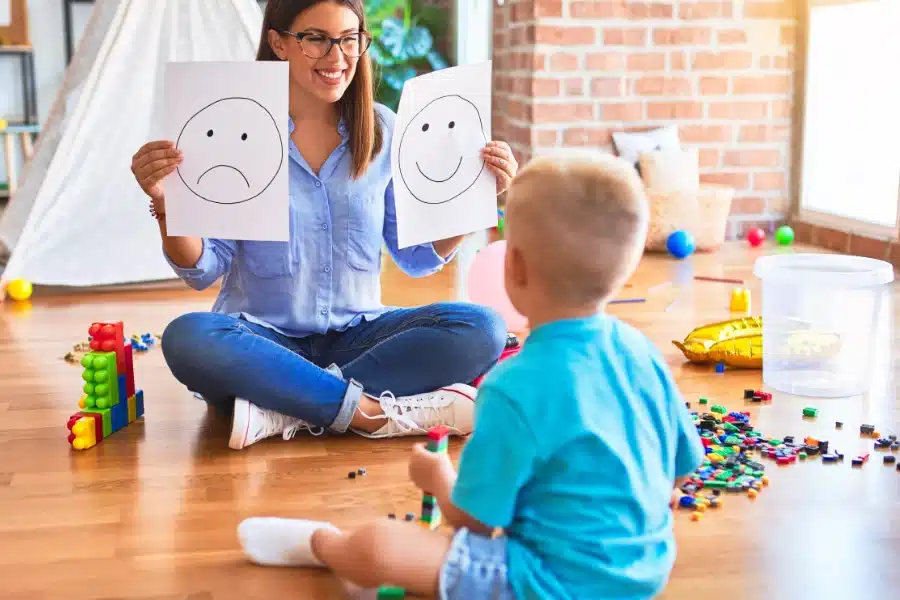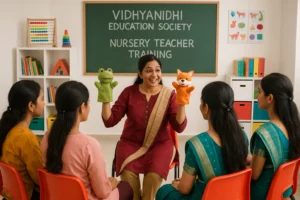
Source: hearingreview
Understanding the connection between Special Ed Autism and general special education can often be confusing for parents and educators. While Special Ed Autism is a part of special education, it addresses the specific learning and behavioral needs of children on the autism spectrum. Not every child in special education has autism, and not every child with autism needs the same type of support. This blog clears up the differences to help you better understand how tailored approaches benefit children with unique challenges.
Understanding Autism
Autism, also known as Autism Spectrum Disorder (ASD), is a developmental condition that affects how a person communicates, interacts, and experiences the world. It appears early in childhood and continues throughout life. Autism varies widely in its impact, which is why it’s called a “spectrum” disorder.
Here are key aspects to understand about autism:
Social Interaction Challenges
Many individuals with autism find it difficult to understand social cues, maintain eye contact, or engage in typical conversations.
Communication Differences
Some may be nonverbal, while others may have advanced vocabulary but struggle with back-and-forth dialogue or tone interpretation.
Repetitive Behaviours and Routines
A strong preference for routines and repeated actions is common. Changes in routine can cause distress.
Sensory Issues
Autistic individuals often react unusually to loud sounds, bright lights, and strong smells due to their heightened sensitivity to such stimuli.
Gifted individuals
People with autism are often highly talented individuals with unique competencies, and their traits of paying attention to details and noteworthy memory in areas of their choice are commendable.
Autism influences the daily functioning skills of the child, due to which their movement in the learning environment or behavioral patterns can create chaotic situations. However, one must note that despite their challenges, they possess some exceptional skills that can be capitalized on to support their learning, helping them function effectively in any environment.
To download the brochure of the SEN Courses, Click Here!
For more details about SEN Courses, Call/WhatsApp at +919321024137 / +919869866277

Source: kidscarehospital
Understanding Special Children
To be able to address the Needs of Special Children, understanding special children, identifying their challenges, and ascertaining their strengths and weaknesses is a must. Special children are individuals who possess certain neural malfunctions due to which some crucial skills needed in their day-to-day lives are poorly developed. This calls for extra assistance and guidance to manage their daily activities effectively. Although special children have varied ways of learning, their intelligence is average, which implies that with dedicated and effective support strategies, they can be on the right path of progress.
Important aspects of special children:
Distinct Needs
Children with special needs may have diverse needs depending upon the type of disorder they possess, such as ADHD, cerebral palsy, ASD, etc.
Exclusive strengths
Every child has exclusive strengths and unique key skills. Some are master artists, some are excellent instrumental players, and some have remarkable problem-solving skills.
Empathetic approach
Special children are often judged a lot, which affects their morale, so they must be dealt with extreme empathy and understanding. Implementing effective techniques of regular routines and rewards helps to boost the morale of special children, helping them to attain their real potential.
Conducive Classroom environment
Ensuring that classrooms are learner-friendly and conducive for children with varied learning needs by applying specialized strategies and latest tech-aided tools.
Emotional Well-being
Encouragement, acceptance, and a supportive environment help boost their self-confidence and social skills.
Understanding special children is not limited to understanding the kid’s learning challenges; it is a comprehensive effort by teachers, Special Educators, therapists, along with their parents, where small wins are celebrated and dedicated efforts are made to provide the best, well-rounded support for children, helping them thrive academically and socially.
To download the brochure of the SEN Courses, Click Here!
For more details about SEN Courses, Call/WhatsApp at +919321024137 / +919869866277

Source: ny1
Educational Approaches for Autism
Teaching children with autism requires thoughtful strategies that match their individual needs, strengths, and learning styles. The prime purpose of the remedial interventions is to support the different developmental domains of the child, including his language development, where his communication skills are enhanced.
Some of the most valuable interventional strategies for ASD have been mentioned below:
Applied Behaviour Analysis (ABA)
Focuses on improving behaviour and skills through positive reinforcement. ABA is widely used in schools and therapy settings.
TEACCH Method of North Carolina University
This method, developed at the North Carolina University is a combination of visual organisers and specialised structured approaches to support children with autism.
Language and Speech Development
The Speech and Language Therapy is implemented to help develop the child’s speech by introducing various exercises and alternative communication devices.
Functional therapy
This therapy helps child develop essential life skills that are needed in their daily functioning, improving their fine motor skills, including coordination skills, fostering independence in school and home environments.
Communication and Social Interaction Skills Training
Children are carefully guided and taught how to display positive behaviours by helping them make eye contact, teaching them the importance of turn-taking taking and helping them understand how to decode social cues.
Individualised Education Program (IEP)
A tailor-made systematic program designed for each child with autism targeting the actual areas of concern and setting achievable, realistic goals, and ensuring that the child receives the desired support services and teaching methods.
Visual Supports
Tools like picture cards, visual timetables, and illustrated instructions help with understanding and routine following.
By using structured, patient, and consistent teaching methods, educators can help children with autism thrive in classroom settings and beyond.
To download the brochure of the SEN Courses, Click Here!
For more details about SEN Courses, Call/WhatsApp at +919321024137 / +919869866277

Source: shutterstock
Educational Approaches for Special Children
Special children are individuals with average intelligence, but their ways of processing information are diverse. To cater to these needs, there is a need for meticulous planning and thoughtful choosing of teaching approaches. These kids may face challenges in communication, flexibility, learning or behaviour, and benefit from instruction that is clear, consistent and structured to their abilities. Vidhyanidhi Education Society (Govt. Regd.) offers a Special Education Needs Course that prepares teachers and caregivers in these effective methods.
Here are some key educational methods for special children:
Individualised Education Plans (IEPs)
Educational Plans based on each child’s strengths and competencies, and accordingly, realistic goals are set and appropriate strategies used for attaining these goals.
Using Multisensorial techniques
This implies using a variety of sensorial teaching techniques combining visual, auditory and hands-on learning activities, helping children retain concepts for a longer time and apply them in their learning journey.
Daily functioning skills training
Children are trained about crucial life skills that are extremely essential in their daily living, which include simple activities such as dealing with money, tying laces, how to get dressed and even basic etiquette.
Peer Partnerships
These techniques help to foster better bond building between special children and their peers through group activities, promoting the feeling of oneness and solidarity.
Incorporating the latest AI-backed and tech-powered devices
Using assistive technology and AI-powered teaching tools, such as speech-to-text tools and educational apps, helps the child to remain totally engaged in the learning process.
Behavioral regulating therapies
Behavioral strategies are used to train children in how to control their emotions and regulate their meltdowns and achieve positive behavior patterns. Setting clear boundaries and clear expectations helps children understand what is expected from them.
The Special Education Needs Course offered by Vidhyanidhi Education Society (Govt. Regd.) covers important teaching methods, behaviour management, and inclusion approaches. With proper training through the Special Education Needs Course, teachers can create meaningful learning experiences for kids with special needs and help them reach their full potential.
Support Brighter Futures, Join the SEN Course by Vidhyanidhi Education Society!
To download the brochure of the SEN Courses, Click Here!
For more details about SEN Courses, Call/WhatsApp at +919321024137 / +919869866277
SEN Course
FAQs
Are the Educational Approaches for Autism and Special Children Similar?
Both use individualised plans, visuals, and structured routines; autism programs add social-communication practice. Approaches align but aren’t identical.
Are there any Specific Therapies that can Benefit Both Autism and Special Children?
ABA, speech, OT, and sensory integration aid autism and other needs by boosting communication, regulation, and life skills. Vidhyanidhi Education Society offers training.
Are Special Needs and Autism the Same Thing?
No. Autism is a specific neurodevelopmental condition; “special needs” is a broad term covering autism plus other physical, learning, or emotional disabilities.



